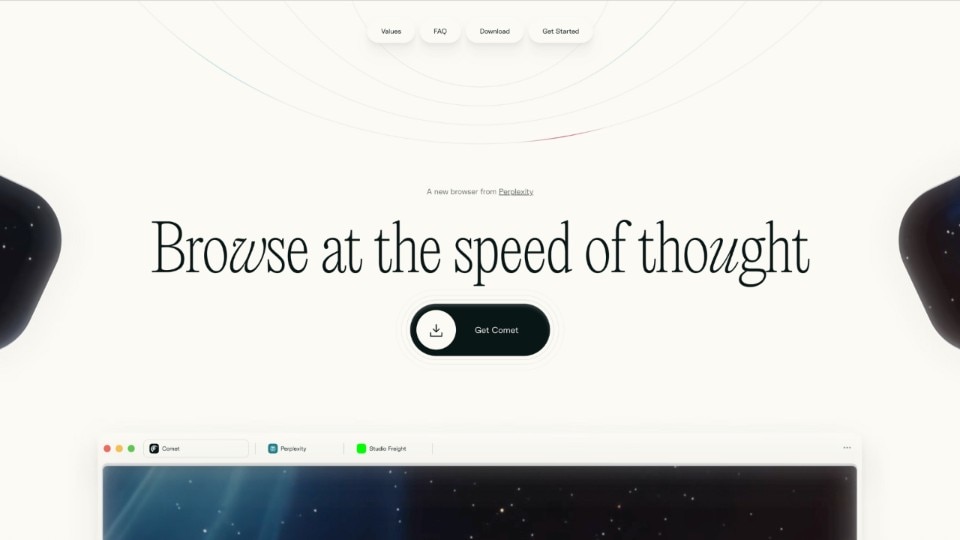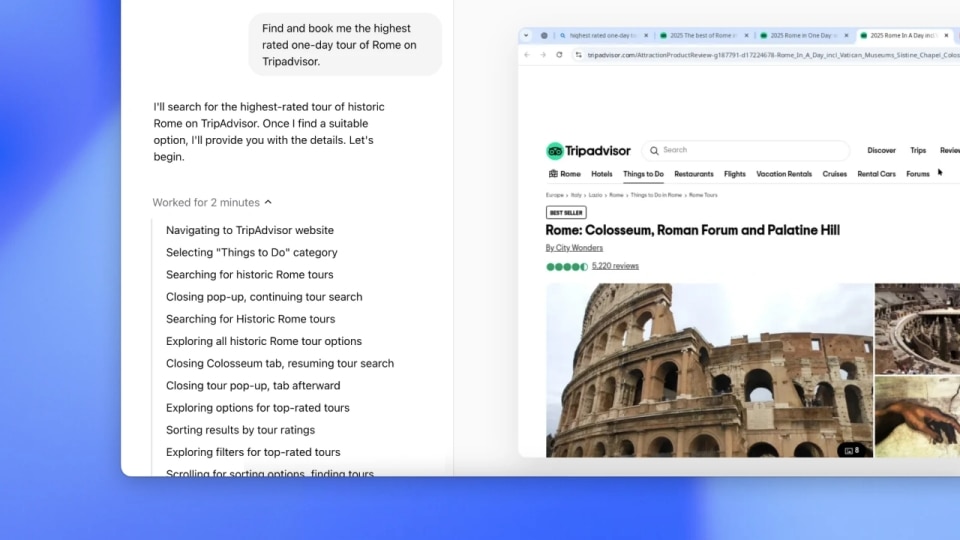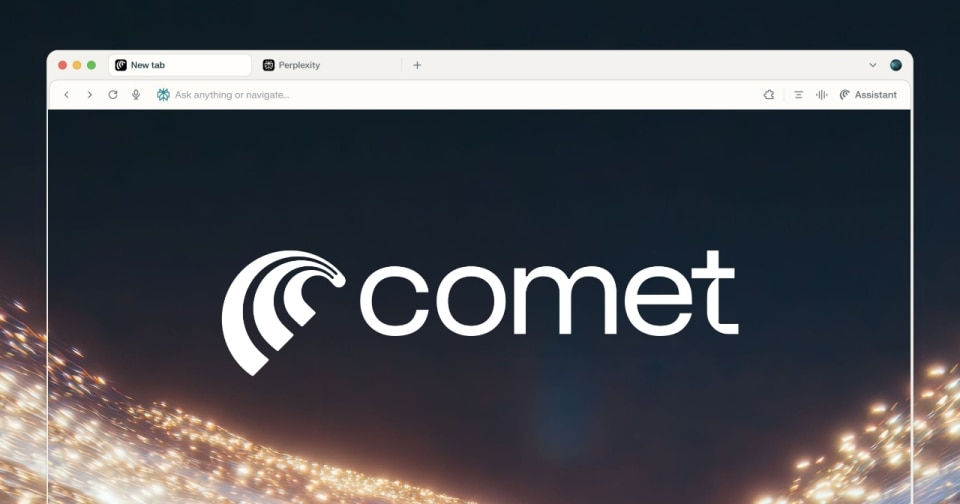OpenAI's Perplexity Comet and Operator are the ultimate expression of the browser AI, or rather AI agents who are in charge of fulfilling every request: a new generation of online browsing tools with "cognitive" abilities. Although the browser has evolved over time, moving beyond the simple function of a vehicle for navigating the Internet, today a momentous shift is taking place. Precisely the shift to cognitive browsing, where interaction with content of interest becomes conversational (chatbots), informative summaries can be enjoyed, tasks can be automated, and in practice the AI becomes the intermediate and simplifying agent between the user and the data, information, content, and task. The direct consequence-although only time will confirm this-is that Google's power may also be diminished. But not so much because Chrome has been left in the lurch on the AI interaction front, but only because potential viable alternatives are materializing.
It should be noted, however, that there is a substantial difference between traditional browsers that have been coupled with an AI interface, such as Edge with Copilot or Chrome with Gemini, and AI agents that use not only browsers but also other applications.

Perplexity Comet, the outsider that is making people talk
Comet is an AI browser released by California-based Perplexity on July 9, 2025. The company is little known to the general public because it was in fact only born in 2022, but notable backers include Jeff Bezos of Amazon, Nvidia and SoftBank. The browser is currently in Beta and can be accessed by invitation or by subscribing to the $200/month Perplexity Max plan. For now it is available for Windows and macOS, but Linux, iOS and Android versions will also be coming. Those who have tried it have recognized quality and efficiency: then remember that the mechanics are from Chromium, the same shared by Chrome and Edge. For example, receiving an email request for a meeting, one can ask Comet's AI assistant to pinpoint the ideal time in the calendar and prepare a draft response.
.
At that point you get a proposal to which you can either give the okay or decide to plan otherwise. Another scenario is when discovering a user X worthy of interest one can ask if we have connections in common on Linkedin and then play them accordingly. Again via prompt, then elaborate question, one can ask what the critical issues are in a specific article with sources attached. Comet effectively resets the boundaries between email, browsing, social, maps and every other front by placing at the center the relationship between the user and an assistant capable of interacting with everything and providing not only answers but acting with all the tools available.
OpenAI Operator and ChatGPT Agent

Operator is an experimental AI agent from OpenAI that was previewed in January 2025 and is currently available exclusively to U.S. ChatGPT Pro subscribers. Unlike SearchGPT which acts as a search engine with an AI interface (chatbot), Operator along the lines of Comet can multi-task and acts as an intermediate agent. So again through prompts one can perform elaborate online searches, have step-by-step procedures performed vocally, book trips, have it interact with the interfaces of a great many software. Also recently released was ChatGPT Agent, which in fact is an evolved version of Operator with combined "deep search," that is, the ability to synthesize a greater amount of information gathered from the Web. In short, it should shine in financial analysis.
A new navigation paradigm?
With tools such as Comet, Operator and ChatGPT Agent, access to the Web is no longer an autonomous exploration but a dialogue mediated by intelligent agents that anticipate needs, automate tasks and reorganize our relationship with information. A transformation that could not only reshape the hierarchy of tech giants, but also redefine the way we "stay" on the Internet: more delegation, less direct control, perhaps more efficiency-but also new unknowns about the transparency and reliability of AI decision-making.


